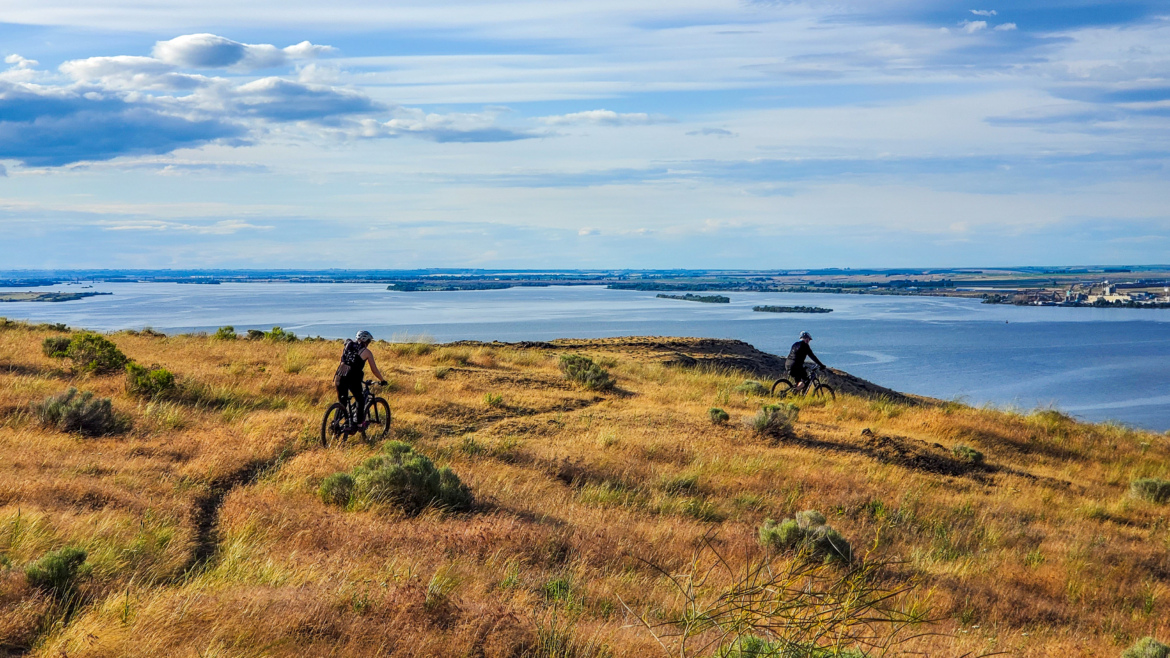
Kennewick, Pasco, and Richland make up the “Tri-Cities” in southeast Washington. While buttes surround the area, some with a few thousand feet of elevation gain, there is little in the way of official trail networks. Although many social trails have been etched into the hillsides over the years, sanctioned trails are few and far between.
However, that could change soon, as a land transfer proposal is currently in the works. If approved, a few hundred acres could be transferred to Benton County from Washington’s Department of Natural Resources, and the Evergreen Mountain Bike Alliance’s newest chapter, Columbia Basin Evergreen, wants the land to be the Tri-Cities’ first official mountain biking trail system.
So far, county and city officials are on board.
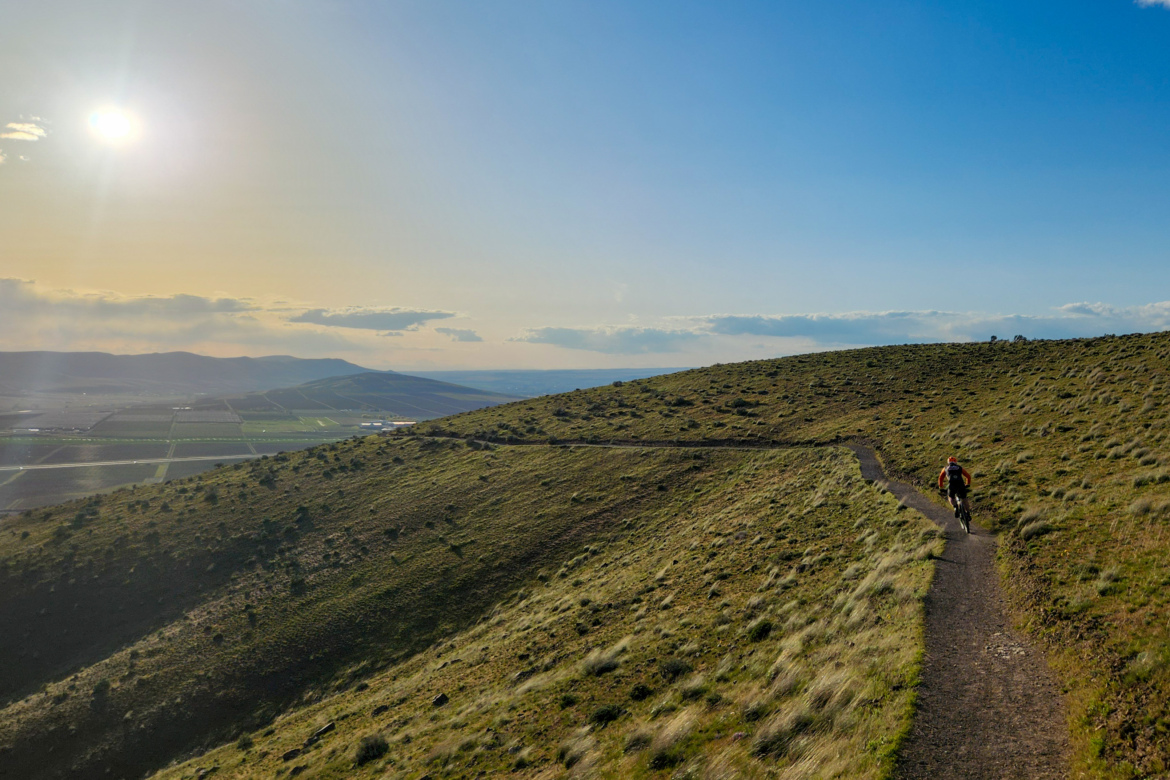
Tri-Cities MTB culture
“There’s a cycle culture here, but it’s primarily road [cycling],” Sam Chou told us. Chou is a board member of the newly formed Columbia Basin Chapter of the Evergreen Mountain Bike Alliance (EMBA). He is also a lifelong Tri-Cities resident.
The area’s abundant backroads with light traffic feature what Chou described as “swooping elevation changes” as they pass through beautiful country landscapes — perfect for miles and miles on skinny tires. Tri-Cities also doesn’t get much snow, making it a great place to ride year-round. Chou felt that the area’s emphasis on road cycling is partially responsible for its lack of a proper trail system.
However, that doesn’t mean there isn’t a mountain bike culture within Tri-Cities. Chou shared that, in his opinion, mountain biking there seemed to be segmented into two groups.
First, there are the XC riders, who see a significant amount of crossover from the road cycling community. Many Tri-Cities’ XC riders frequent the trails at Chamna Natural Preserve to get some miles in. While mountain biking is allowed at Chamna, it was an afterthought and added as a trail user group rather than a system designed with mountain biking in mind.
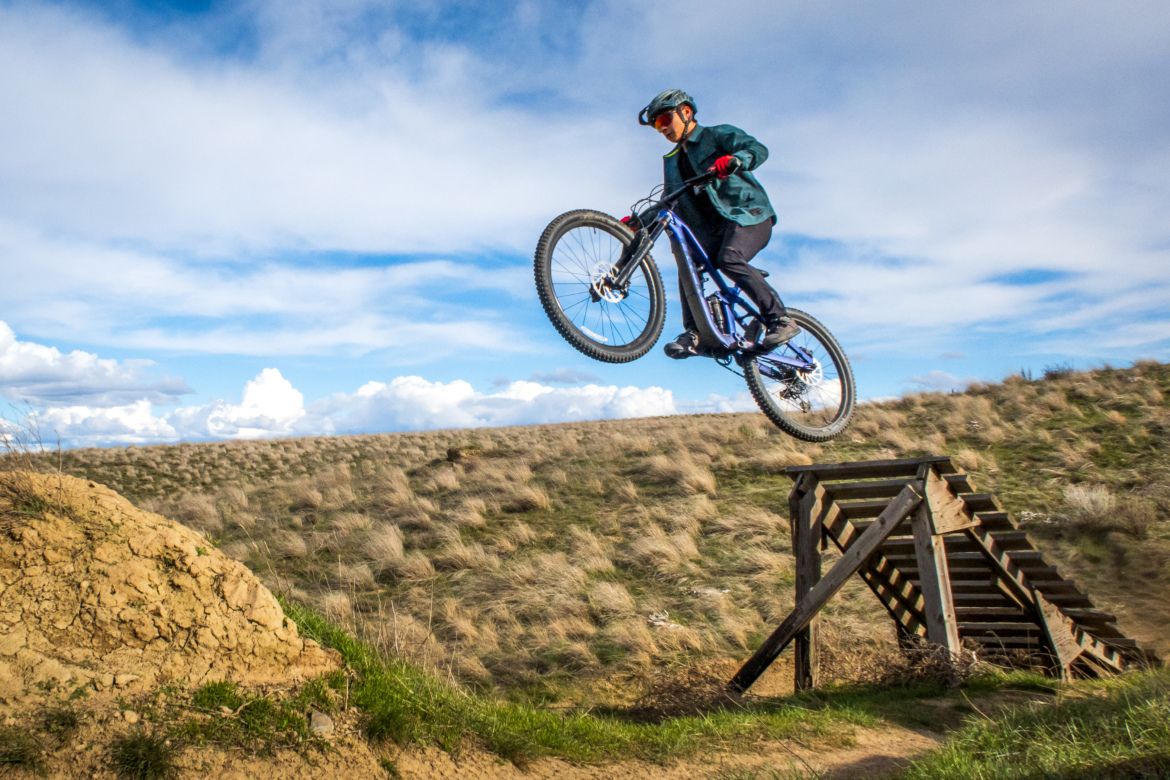
The second type of mountain biker in the Tri-Cities is the DH/freeride group. “There’s a piece of property that’s called State Patrol,” Chou said. “It’s located by the State Patrol Office in Kennewick, and that place is the Wild West.”
State Patrol has been accessed by two-wheeled contraptions for years, first by dirt bikes and later by mountain bikes. Chou explained that many of the trails were built by the DH/freerider crowd — huge gaps, huge drops, and other big features.
There is also a variety of trails that cut down many of the buttes, such as Badger Mountain, that surround the Tri-Cities. Some trail maps and apps will show some of these trails, but, upon further inspection, the phrase “unsanctioned trail” typically follows. Similar to State Patrol, many of these trails are for advanced riders, heading straight down steep chutes that are loose, rocky, and rutted. Some of these trails end in awkward spots, such as private property, neighborhoods, and people’s backyards.
Whether it is State Patrol trails or the skidders on surrounding buttes, what all of these trails have in common is that they were illegally built. The State Patrol trails are technically on private land, and while Chou said the landowners are aware of the trails (and don’t seem to care), there is no guarantee they will be around forever.
The other thing these social trails indicate is that there is a mountain bike community that doesn’t have a place to ride. Tri-Cities, with its year-round mountain biking potential and topography, would be a prime location for trail systems.
And, now, Columbia Basin Evergreen wants to do something about that.
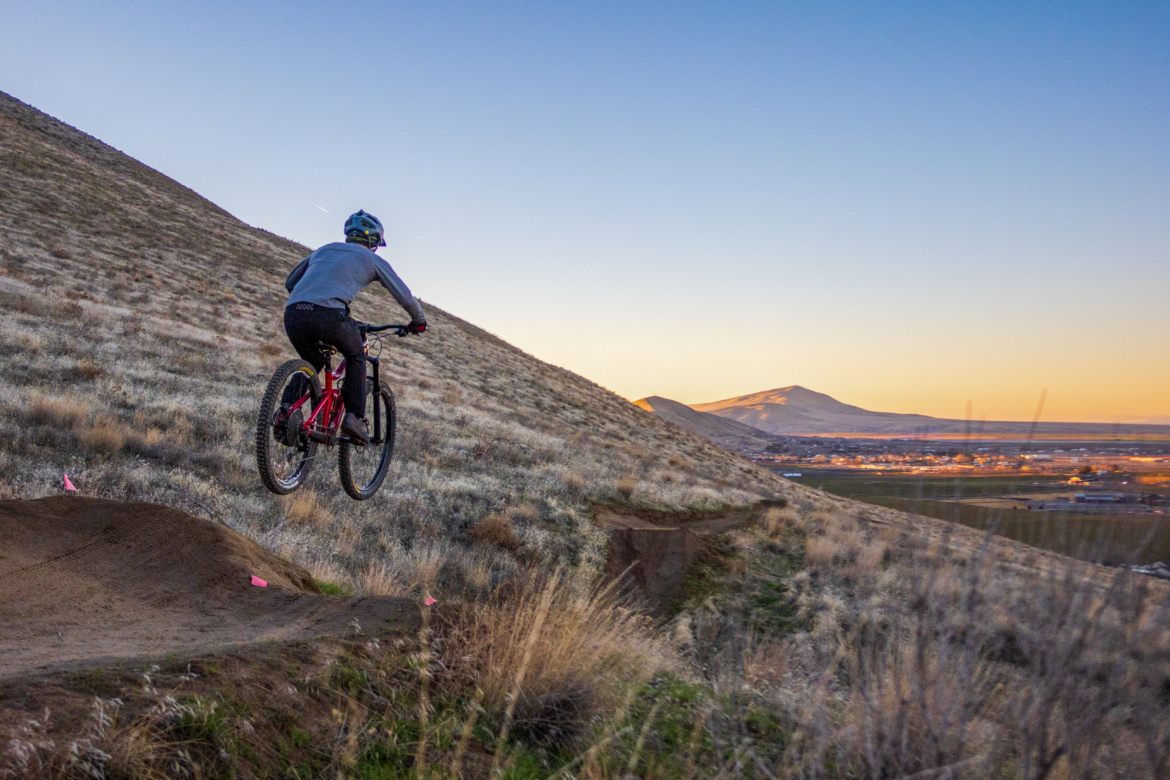
A critical land transfer is in the works
Just a few years ago, a group of mountain bikers formed the Shrub Steppe Trails Alliance to advocate for trails in the Tri-Cities. A few months ago, Shrub Steppe became the Columbia Basin Chapter of EMBA.
Now, they’re championing what could be the Tri-Cities’ first legitimate trail system. The Washington Department of Natural Resources holds a 269-acre parcel on the city’s south side that would house the new trail system. The proposal calls for transferring those 269 acres to Benton County to help fulfill the county’s open spaces plan.
Chou made it clear that Columbia Basin EMBA isn’t involved with the actual land transfer and couldn’t speak to the details. However, he did share that, thus far, city and county officials seem positive about the proposal.
“Pretty much all the government municipalities have been very supportive and recognize, first off, [mountain biking] as legitimate, and then recognize the lack of opportunities in the Tri-Cities, and are very willing to support us in that respect,” Chou said.
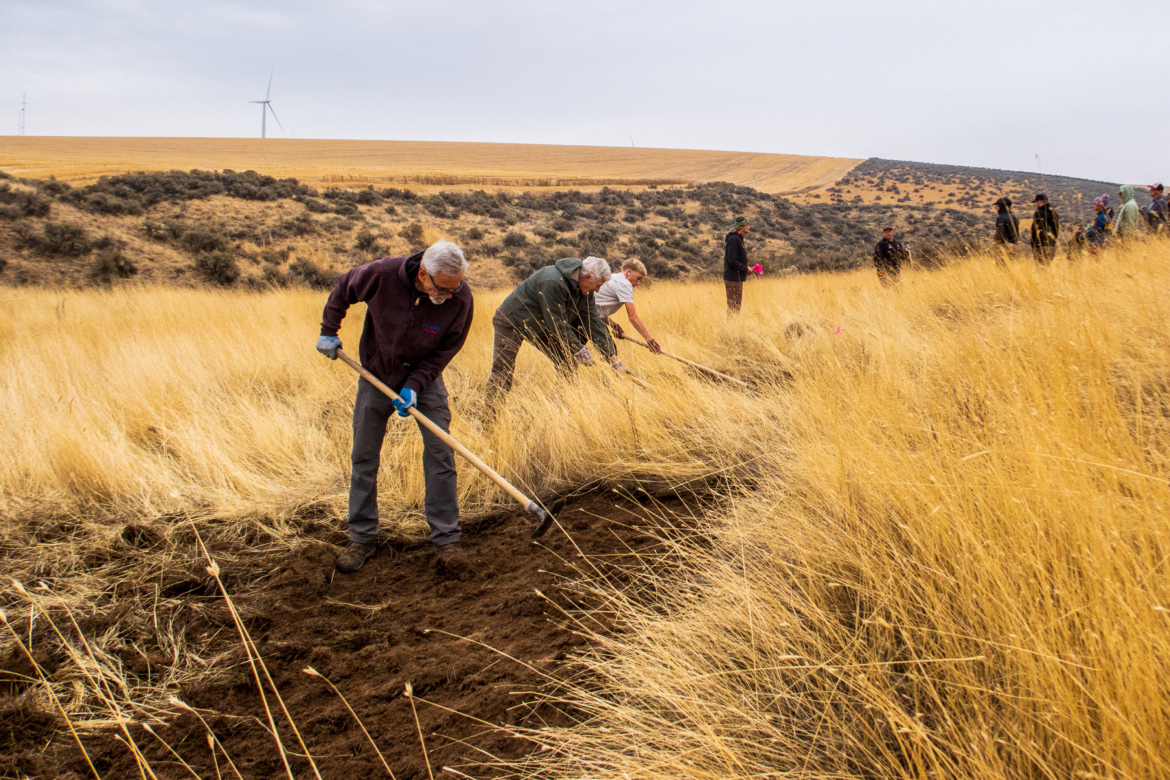
A potential new trail system in the Tri-Cities
Since Benton County is in the very preliminary stages of the potential land acquisition, Columbia Basin EMBA doesn’t have any official plans for what the trails will look like. However, Chou was able to share a bit about the area.
According to Chou, there isn’t much flat space on the nearly 300 acres. Most of the land comprises the hillside of a butte, rising some 500 feet above the terrain below. Columbia Basin EMBA expects to build a modern trail system, with climbing trail(s) to the top and multiple options for descending, with descents likely being less than a mile. This means that the trail system would not only be Tri Cities’ first mountain bike-specific system, but it will also be gravity-oriented.
The planned trail builds will primarily create beginner and intermediate downhill runs. Chou said solid intermediate descents are definitely missing in Tri-Cities.
The next significant hurdle they must overcome with the WA-DNR/Benton County land transfer is access. Currently, access to the area is via a canal road or, like other buttes in the Tri-Cities, through private land. Columbia Basin EMBA is working to find a solution.
For now, it is a waiting game. “The land transfer process takes two years,” Chou told us. In the meantime, the trail org is exploring lease agreement options in hopes of beginning trail work while they wait for the official transfer.


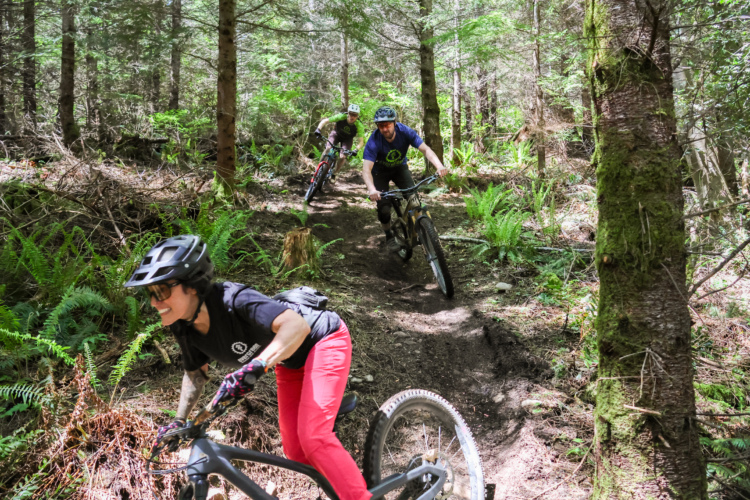

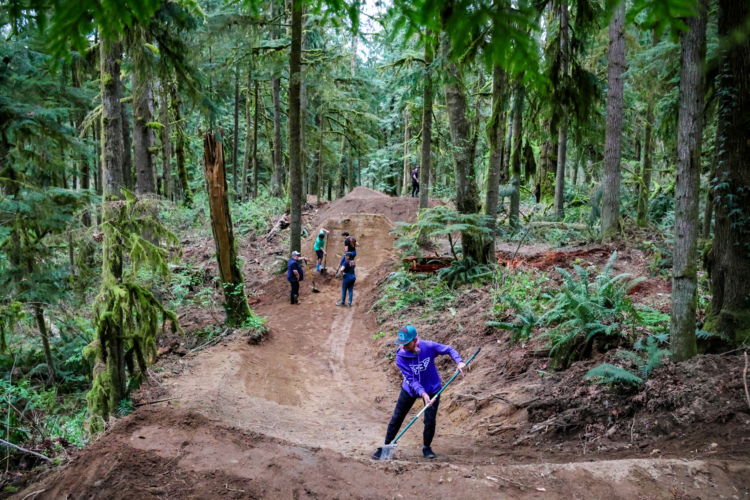
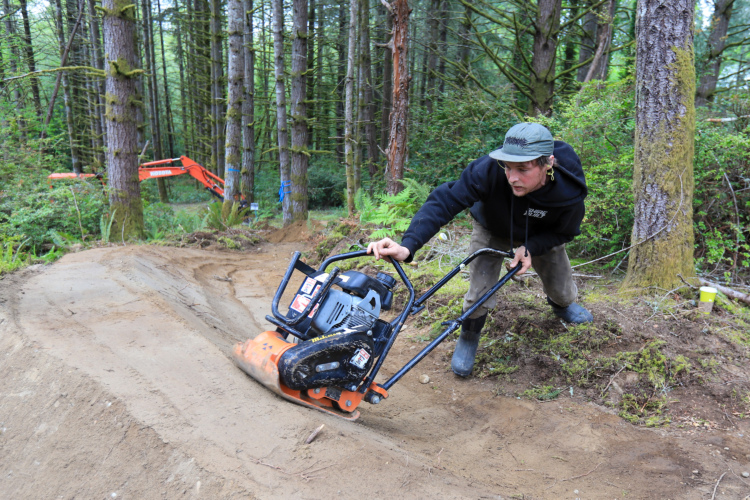
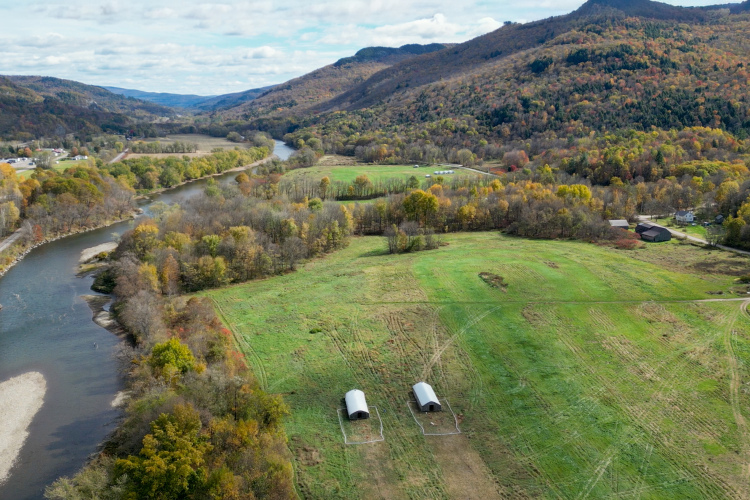
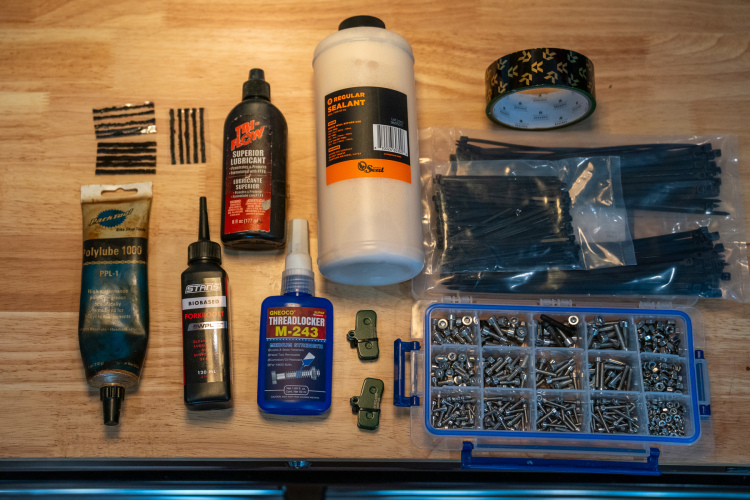
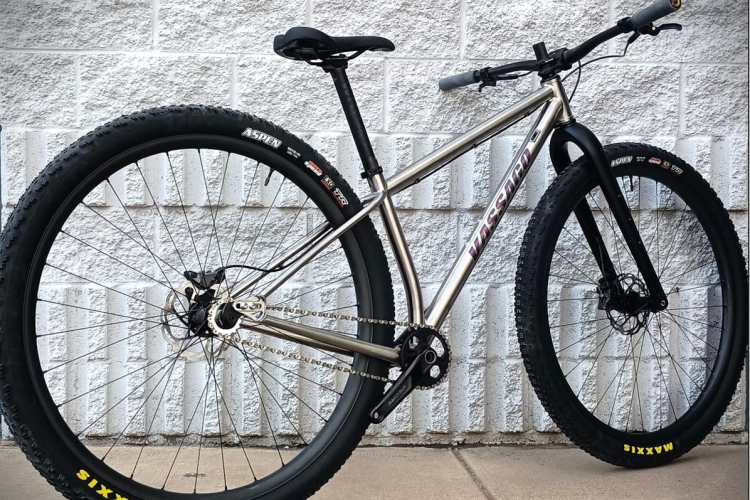
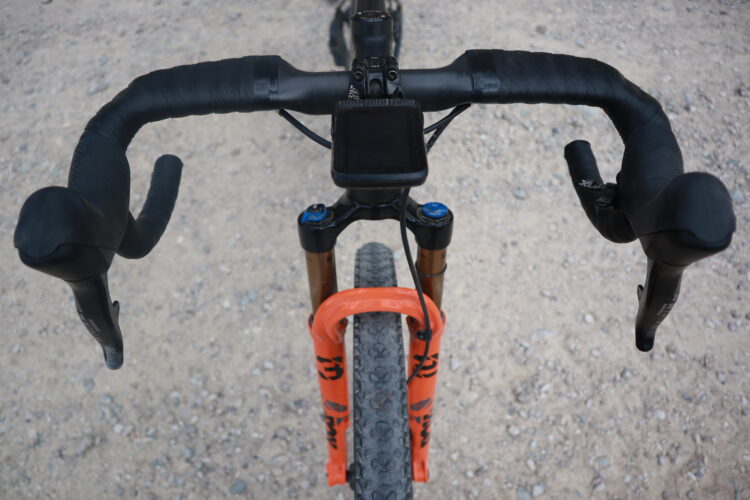

1 Comments
Sep 28, 2025